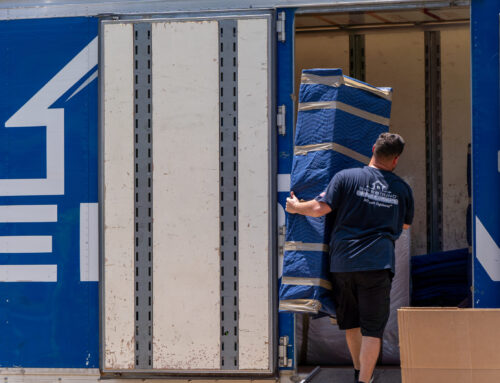Congratulations! You’ve landed that dream job you’ve been working so hard for, and it requires you to relocate. While the prospect of a new job and a fresh start can be exciting, moving for work can also be a significant life change that comes with its own set of challenges. Finding the right balance between your career and personal life during a move is crucial for a successful transition. In this blog post, we’ll explore some tips and strategies to help you navigate the process of moving for a new job while maintaining a healthy work-life balance.
1. Plan Ahead
Moving for a new job involves a lot of moving parts – both literally and figuratively. The first step to achieving a smooth transition is meticulous planning. Start by creating a comprehensive checklist that outlines everything you need to do before, during, and after your move. This should include tasks like finding a new place to live, notifying your current employer and colleagues, and scheduling the actual move with a reputable moving company.
Make sure to allocate sufficient time for each task, and don’t underestimate the time it takes to settle into your new home and job. Rushing the process can lead to unnecessary stress and can disrupt your work-life balance.
Move within Florida? To minimize stress during a job-related move, explore the option of hiring a reputable moving company in West Palm Beach, FL. With meticulous planning and the support of such professionals, you can ensure a smooth transition, preventing unnecessary stress that could affect your work-life balance.
2. Research Your New Location
Before making the move, take some time to research your new location. Understanding the local culture, cost of living, and lifestyle can help you prepare mentally for the transition. Explore the amenities and recreational opportunities in your new city to ensure that you can maintain a fulfilling personal life outside of work.
Additionally, look into schools, healthcare facilities, and other essential services in the area if you have a family. Being well-informed about your new environment can reduce the anxiety associated with moving to an unfamiliar place.
3. Communicate with Your Employer
Effective communication with your new employer is key to maintaining a healthy work-life balance during your move. Discuss your expectations regarding your work hours, workload, and any remote work possibilities. Many employers are understanding of the challenges that come with relocating for a job and may offer flexibility to help you settle in smoothly.
If your new job requires a significant time commitment, negotiate for additional vacation days or consider negotiating your start date to allow for a more gradual transition. Open and honest communication with your employer can lead to a more supportive work environment during this transitional phase.
4. Delegate Responsibilities
Moving can be physically and emotionally taxing. Don’t hesitate to ask for help when needed. Whether it’s hiring a professional moving company to handle the logistics or seeking assistance from friends and family, delegation can reduce your stress and free up time for personal matters.
It’s essential to delegate tasks at work as well. If possible, delegate some of your responsibilities to colleagues or subordinates during the move. This will help you maintain a better work-life balance and ensure that you’re not overwhelmed with work-related stress while trying to settle into your new job and surroundings.
5. Establish a Routine
Once you’ve relocated, it’s crucial to establish a daily routine that accommodates both your career and personal life. Create a schedule that includes dedicated time for work, relaxation, exercise, and social activities. Stick to this routine as closely as possible to ensure that you maintain a sense of balance and control over your life.
Balancing your career and personal life requires discipline, especially in the early stages of your move. Avoid the temptation to overwork or neglect your personal well-being, as this can lead to burnout and negatively impact both your job performance and personal life.
6. Build a Support Network
Moving to a new place can be lonely, especially if you’re leaving behind friends and family. Building a support network in your new location is essential for maintaining a healthy personal life. Join local clubs, organizations, or meetups that align with your interests. Attend social events and network with colleagues and neighbors.
Having a strong support system can provide emotional support, make you feel more connected to your new community, and enhance your overall well-being. Don’t hesitate to lean on your support network when you need assistance or simply want to enjoy some downtime.
7. Prioritize Self-Care
Finally, never underestimate the power of self-care in maintaining a healthy work-life balance. Moving for a new job can be physically and mentally draining, so it’s crucial to prioritize your well-being. Make time for activities that help you relax and de-stress, whether it’s meditation, yoga, or simply reading a good book.
Additionally, ensure that you’re eating healthily, getting enough sleep, and staying physically active. A healthy body and mind are essential for both your career success and personal happiness.
In conclusion, moving for a new job is a significant life event that can be both exciting and challenging. Balancing your career and personal life during this transition is essential for your overall well-being and success in your new role. By planning ahead, communicating with your employer, and prioritizing self-care, you can navigate the move with confidence and ease. Remember that it’s okay to ask for help and lean on your support network when needed. With the right approach, you can make the most of this exciting opportunity and create a fulfilling life in your new location. Good luck with your move and your new career!





